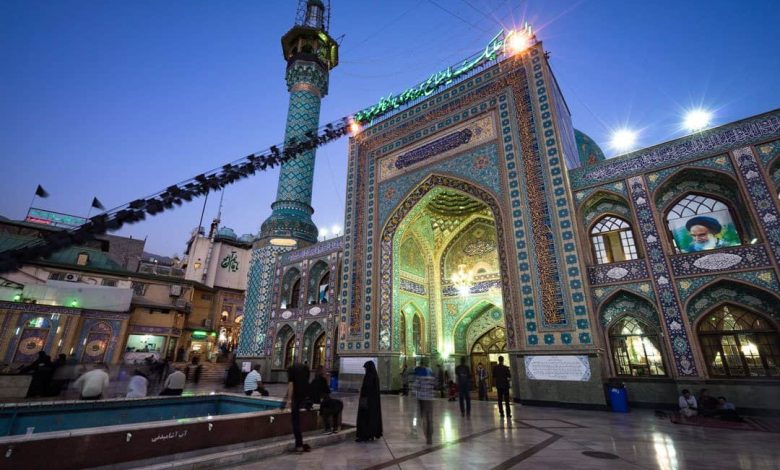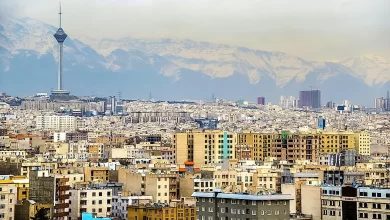What to Know Before You Visit Iran

What to Know Before You Visit Iran
The truth is travelling in Iran definitely has its quirks, and being an Islamic country means there’s a few things you need to know about the religion and culture before you go so you can show absolute respect. Iran is such an incredible country to travel. The architecture will amaze you, the friendliness of the people will leave you speechless, the culture is fascinating and the landscapes are out of this world.
Iran is a misunderstood country
Iran is also very misunderstood, with many people believing whatever propaganda they hear on the media about how dangerous or difficult it is to travel there. Luckily these are easy enough to know before you go if you do a bit of research. We spent one month travelling around Iran and learnt so much during our time there. To help put your mind at ease about travelling in this incredible country, here’s our list of the most important things to know before you visit Iran.
Iran is Safe!
All of the mainstream media outlets portray Iran as an unsafe country, somewhere that you’ll be at risk if you visit. The mainstream media is wrong. We did not feel unsafe once through the whole 4 weeks of us backpacking independently in Iran. We weren’t with a tour group, had no tour guides, don’t speak the local language, took public transport and taxis, wandered the streets on our own – basically everything you shouldn’t do if you’re in a dangerous country. And guess what? Nothing bad happened to us at all!
The Iranian people are so friendly
The Iranian people are so friendly and helpful. They want you to have a great time and tell your friends so more people will come and visit. We were walking around one morning on a quiet street when a car passed us and turned around. A group of young people stopped the car, came up to us, and asked if we were ok or if we needed help. Once we told them we were just looking for a coffee they pulled out their phones and started showing us where the cafes were on a map. They even offered us a ride, and said if the cafes were closed they had coffee at their home and would love to make us some. This is just one example of dozens of interactions that happened to us when we were in Iran. Iranians love that tourists are coming to their country and travelling around.
The locals know what the media says about them and what a lot of the world thinks of their country, and the people just want to show that they are nice, generous people. Theft against tourists is very rare and even the Religion Police (secret police) tend to leave tourists alone.
Just be careful around the bazaars and crowed places for pickpocketing. We didn’t have any issue and didn’t hear of any other travellers having problems, but this is common sense in any busy place in the world. With all that being said, there is a large military and police presence in Iran. Do not photograph any military areas or government buildings, and stay away from any protests if you see them.
Obviously there are some areas of Iran that are no-go zones, such as the borders of Afghanistan, Pakistan and Iraq, so do your research and talk to locals if you’re thinking about going anywhere near them.
There’s a lot of Customs to Follow
When you travel somewhere you want to take in everything about the country and its people, and that includes the culture and customs. Iran has quite a few local customs that may take some getting used to, so it’s important to learn about them before you go so you don’t accidentally offend or disrespect anyone. Some of the most common ones that throw tourists off are:
Women hijabs in Iran
Women must wear hijabs (headscarves) at all times in public. They must also wear loose-fitting clothes that don’t show their figure. Giving a thumbs-up sign is considered rude, similar to giving the middle finger in Western society. Men can wear short-sleeved shirts, but long pants must be worn at all times.
Men and women who aren’t related shouldn’t touch either. That means no shaking hands or hugging someone of the opposite sex. If you are travelling with your significant other, avoid any public displays of affection. Always bring a gift if you are invited to someone’s house. Candy, pastries or flowers are fine.
Ta’arof
Now we want to give a special mention to ta’arof – This is a hospitality trait where it’s customary for someone to refuse payment for a service, and is probably the most confusing thing for any tourist to get their head around. Basically what happens is if you make a purchase (a souvenir, taxi ride, etc), the person may refuse your payment out of politeness. It is then up to you to insist despite their refusals that you want to pay. After two or three times they’ll then accept your money.
If they still keep refusing then perhaps you have just experienced some amazing Iranian hospitality! But chances are they’ll accept the payment once the process has been completed. Don’t worry, you’ll get the hang of it. The locals are so lovely, that if you do something wrong someone will approach you and nicely let you know. For example, if you are a lady and your headscarf falls off without you knowing, a local will kindly let you know.
Don’t stress about getting your outfits beforehand as shopping in Iran is cheap. Just bring one headscarf and set of loose-fitting clothes, and buy more once you get there. The culture is the best thing about visiting Iran, and after a few days, you’ll start to understand and fall in love with it just like we did.
You Need a Visa for Iran
In order to visit Iran, you’re going to need to get a tourist visa. This used to be a very difficult process, but luckily things have gotten easier with the introduction of visa on arrivals in 2016.
The Source of the above texts is nomadasaurus.com



